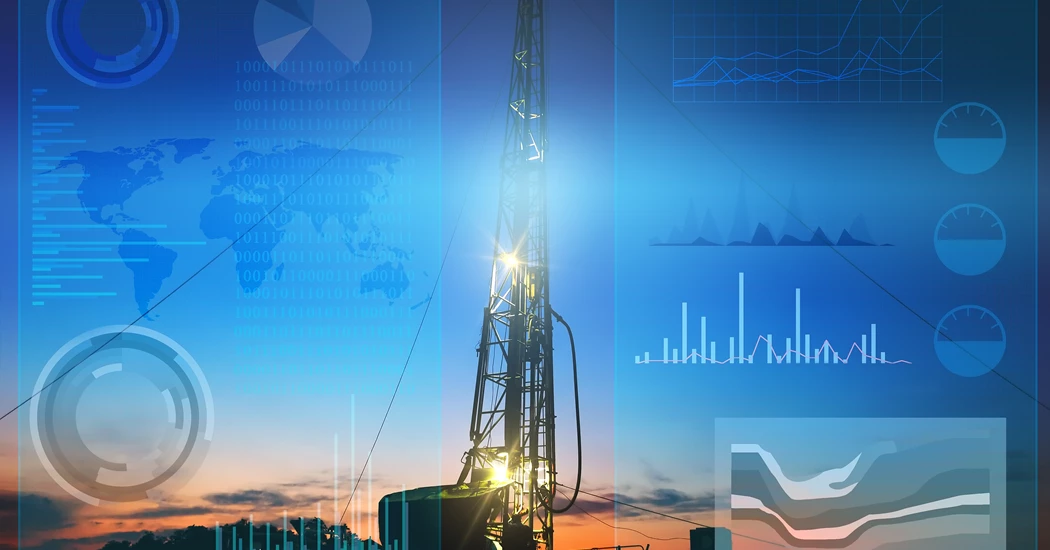How AI is helping oil and gas companies achieve net zero
The world’s environmental crisis is intensifying in magnitude and urgency. The oil and gas industry is not immune to the responsibility of reducing emissions, improving energy efficiencies, and increasing sustainable initiatives.
To highlight one of the many reports demonstrating the gravity of the situation, Microsoft and PwC recently found that greenhouse gases are at their highest levels in 3 million years, 91 percent of people globally don’t live in standard air quality-controlled areas, and 60 percent of biodiversity has been lost since 1970.
If you think reduced global travel caused by the COVID-19 pandemic has helped substantially in the battle against the climate crisis, think again. Global greenhouse gas emissions only decreased an estimated 17 percent in April 2020 compared to April 2019, 5 percent in June 2020 compared to June 2019, and 4-7 percent overall in 2020 compared to 2019, according to the United in Science report by the UN, the World Meteorological Organization, and many other international organizations. The US Energy Information Administration also estimated that global oil consumption in 2020 averaged 92.9 million barrels per day, only down 8.6 million barrels per day from 2019 (or 8.5 percent) - while the International Energy Agency forecasted global natural gas demand to fall just 3 percent in 2020, or about 120 billion cubic meters.
Granted, some of these figures are indeed immensely historic reductions but they aren’t as significant as one may think given the worldwide reduction in travel – and they aren’t significant when compared to the 100 percent reduction in greenhouse gas emissions required to achieve net zero.
Industry initiatives and carbon reduction goals
Many oil and gas companies have announced plans to reduce their carbon footprints to net zero over the next several decades, often with a target year between 2030 to 2050.
For example, bp has pledged to achieve net zero emissions in its operations by 2050 and cut operational emissions 30-35 percent by 2030. The supermajor ambitious plans also include:
- Decreasing the carbon intensity in sale-able products more than 15 percent by 2030
- Measuring methane at all processing sites and progressing toward cutting the methane intensity of operations in half by 2023
- Increasing low carbon investments 10-fold to around US $5 billion a year by 2030
- Partnering with 10-15 cities and three core industries in decarbonization efforts
- Developing roughly 50 gigawatts of net renewable generating capacity by 2030 (a 20-fold increase from 2019)
- Reducing oil and gas production by at least one million barrels of oil equivalent per day (a 40 percent dip from 2019 levels)
- Supporting the global push to net zero through active policy advocacy
Shell, Total (France), Repsol (Spain), and Equinor (Norway) are also striving to become net zero by 2050.
Meanwhile, ExxonMobil and Chevron have discussed more modest goals, not committing to net zero but instead aiming to meet goals set by the Paris Agreement. ExxonMobil plans to reduce the intensity of operated upstream oil greenhouse gas emissions 15-20 percent by 2025, compared to 2016 levels, along with a 40-50 percent decrease in methane intensity and a 35-45% decrease in flaring intensity.
Chevron plans to reduce its upstream oil greenhouse gas emissions 5-10 percent by 2023 (as compared to 2016 levels), along with a 20-25 percent decrease in methane intensity and a 25-30 percent decrease in flaring intensity from 2016-2023. Both Chevron and ExxonMobil are aiming to reduce upstream natural gas and greenhouse gas emissions by 2-5 percent over that same timeframe.
The role of AI to achieve net zero impact across upstream, midstream, and downstream
Accomplishing these environmental objectives will require oil and gas companies to improve their operational efficiency, maximize resource utilisation, and ultimately reduce waste –all of which can be supported by AI.
Operational efficiency is critical given the dual challenge of needing to provide more energy (to keep up with growing populations and demand) while also emitting less carbon, which often requires companies to consolidate operations or revamp them to be more eco-efficient.
In either case, artificial intelligence can help, seeing as AI systems can ingest and analyze enormous datasets – such as those within refineries – and leverage embedded domain knowledge along with machine learning techniques to provide decision-makers with recommendations for optimizing operational efficiency. So far, advanced applications have provided as much as 10 percent greater efficiencies in economic optimization, asset maintenance reduction, training time for new employees, as well as safety and quality improvements. This might sound unremarkable until you consider that all of this is layered on top of the automated optimization and visualization solutions that existed before. In this vein, AI is solving some of those challenging problems other technologies were not able to overcome in the past. Specifically, with AI implementations across the lubrication formulation process, we are seeing an improvement in cycle speeds up to 2,000 times faster than traditional methods and with greater than 94 percent accuracy.
Such advanced AI systems can also help oil and gas companies predict equipment wear and tear while improving maintenance challenges that lead to leaks, one of the major environmental risks alongside emissions. For example, AI-powered self-navigating robots can inspect pipes for problems, and AI-powered sensors are often installed within permanent downhole gauges inside oil wells to monitor pressure, temperature, and integrity. Additionally, AI can provide 24/7 expert-like oversight to all wells in a company’s portfolio, identifying the best CO2 injection candidates across depleted fields for carbon capture and sequestration. Currently, the industry is increasing awareness and starting to look for hybrid cognitive AI technologies that combine traditional numeric approaches with symbolic techniques and encode invaluable domain expertise to deliver differentiated benefits.
AI has also aided the energy sector by supporting waste reduction, allowing for more economical and sustainable use of resources. Examples of successful AI implementation have been seen in the upstream segment including drilling and well intervention, seismic analysis, and reservoir management. Engineers and geoscientists are able to better analyze geographical and environmental data compared with historical data on reservoir performance to get the most out of existing reservoirs, reducing the number of new drilling projects that impact the environment. AI is also assisting operators in pinpointing areas that are ideal candidates for carbon capture storage or upgrading older reservoirs to equip them for carbon capture storage. AI systems that provide audit trails are particularly valuable in the oil and gas industry to provide the workforce with a clear understanding of how recommendations are formed, generating trust and more confident decisions.
These hybrid cognitive AI systems allow oil and gas professionals to add to and alter the system’s knowledge base once deployed, enabling it to become significantly more flexible and intelligent as it continues to interact with domain experts, problems, and data over time.
Transitioning to net zero won’t happen overnight – but fortunately, oil and gas companies are actively tackling the challenge of achieving cleaner energy production. While it’s somewhat early to quantify precisely how much waste has been reduced, the industry is still in the early days of leveraging AI and publicizing results. Positively, we can see that we’re moving in the right direction with continuously evolving AI technologies playing a crucial role in supporting the industry’s efforts to achieve a more efficient, net-carbon neutral, sustainable future.
Energy Connects includes information by a variety of sources, such as contributing experts, external journalists and comments from attendees of our events, which may contain personal opinion of others. All opinions expressed are solely the views of the author(s) and do not necessarily reflect the opinions of Energy Connects, dmg events, its parent company DMGT or any affiliates of the same.






